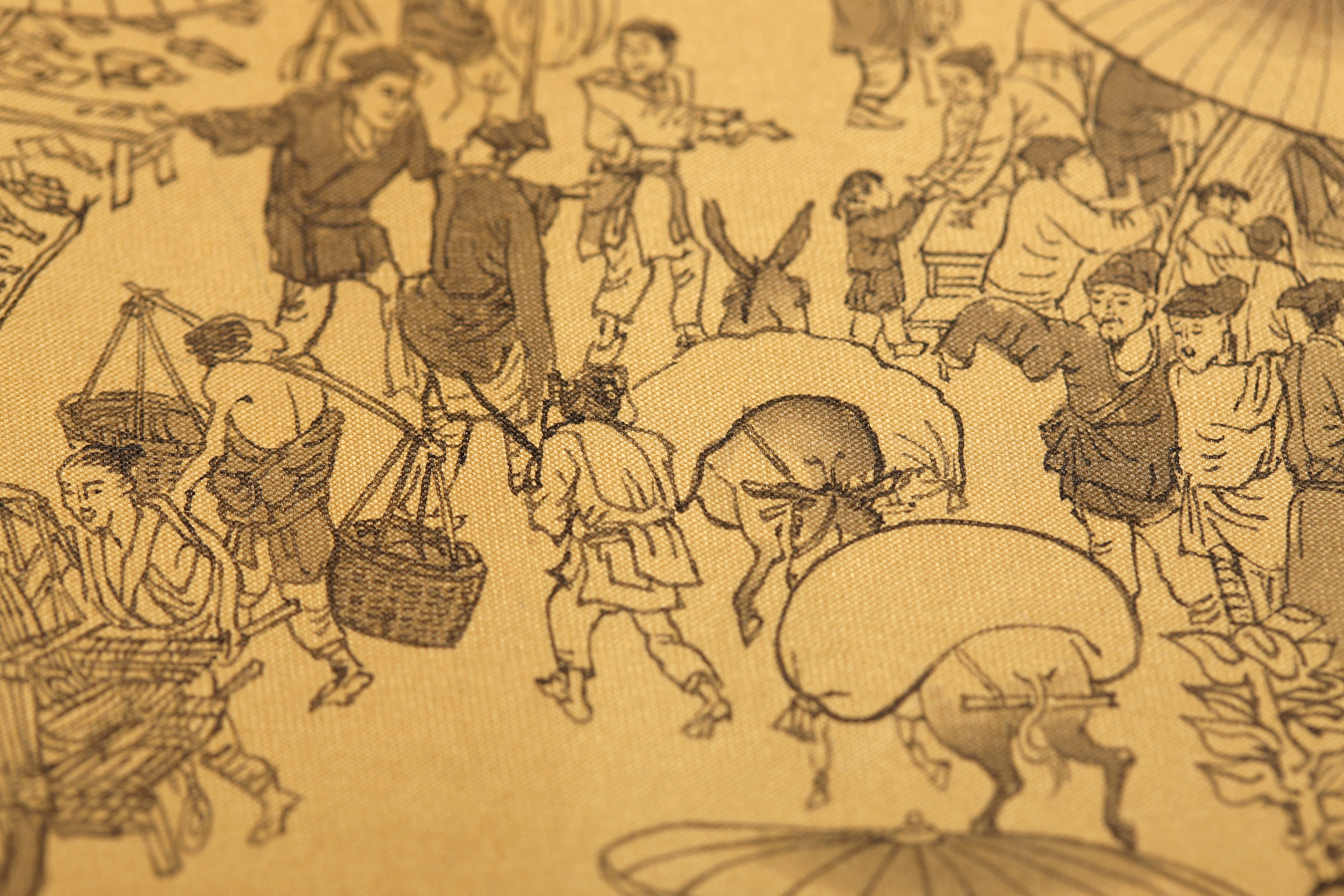
The scene of livestock transporting goods depicted in Along the River During the Qingming Festival painted by Zhang Zeduan(1085–1145).(PHOTO:VCG)
By?ZONG?Shihan
When he was a local dignitary of the Song Dynasty, Shen Kuo faced a crucial challenge of grain transportation while leading his troops against the Western Xia's invasion around 1080. It was urgent for him to find a more efficient method to transport war supplies.
To find a solution, General Shen analyzed the proportion between logistics personnel and soldiers during different marching days, as well as the advantages and disadvantages of using livestock and manpower to transport rations. These analyses were documented in his epic book, Dream Pool Essays.
The first method involved using manpower. Based on the situation at the time, one logistics staffer could carry 37.5kg of rice, while one soldier carried five days of solid food. So, if one logistics staffer supplied one soldier, they could march for 18 days one way, or nine days round trip. Three logistics staff supplying one soldier allowed for 31 days one way, or 16 days round trip. When a logistics staff 's rice was almost used up, let him return first.
However, three logistics staff per soldier was the limit, according to Shen. This was because to mobilize an army of one hundred thousand, it would require three 300,000 logistics staff for grain transportation, making it difficult to scale up further.
The second method was utilizing livestock. Normally, a camel could carry 150kg of rice, a horse or a mule could carry 81.25kg of rice, and a donkey could carry 50kg of rice.
Compared with manpower, there were advantages and disadvantages. Livestock could carry more food than manpower, streamlining soldiers needs and raising combat effectiveness. However, during the march, the animals needed extra time and effort to graze, otherwise they would become weak and even die, resulting in the loss of grain carried.
Because of? higher costs and lower efficiency of self-transportation, Shen emphasized the importance of seizing enemy grain.?Although it was difficult to requisition grain from enemy territories, it could ensure the frontline supply, reducing the pressure on logistic personnel and livestock.
To resolve this military logistics problem actually opened a door to modern operation research ideas, aiming at the overall optimum and seeking a better action plan.
The trio will conduct a series of experiments in fields such as life science, fluid physics, combustion science and materials science. Notably, this is the first time that fruit flies have been taken on a Chinese space mission as experimental subjects. What made scientists choose fruit flies? What experiment will they undergo?
